Caixin Media hosts a series of Caixin Roundtables at several multilateral summits and conferences for critical discussions about the Chinese economy and finance. The Caixin Roundtables will bring together top-level decision-makers and opinion leaders to meet in small groups in a nonpolitical environment to candidly discuss how they can affect global issues.
For more information about Caixin Roundtable, please download the brochure.
Caixin Global Webinars invite experts to share insights from their respective fields. The Coronavirus Series explores medical, social and economic impacts and implications of the outbreak, helping stakeholders including policy makers, businesses and researchers better understand and combat the virus.
For more information about Caixin Global Webinar - Coronavirus Series, please visit webinar review page and watch the replay. You can also find our Coronavius coverages here.
"One reason I wanted to be part of the roundtable is that I do think that it's a unique portal into China."
"Caixin is the rarest of things in China, a courageous media outlet, pursuing the truth in the face of intimidation."
"The influential and respected news organization Caixin Media......"
China Insight, Global Significant
Caixin Global Webinars invite experts to share insights and practical experience from their respective fields. Participants include business leaders, government officials, finance and consulting professionals and industry experts from more than 20 countries, most of whom work with China. Caixin subscribers can participate directly via Zoom, and the events are livestreamed for the public on YouTube and Caixinglobal.com, with key takeaways published afterwards on Caixin’s media platforms.
Upholding Caixin’s consistent professional standards, the 11th Caixin Summit is inviting top experts from China and the international community to share their insights into the time and prospects for the future, right with a focus on the theme: Rebuilding Global Trust.
High-end dialogue between Mr. Schwarzman and interviewer Mr. Huang Shan, followed by discussions with Chinese business leaders. Mr. Schwarzman shared reflections and insights on the past, as well as his expectations and outlook for 2020: facing an unprecedented pandemic and economic hardship, what it takes for the world to tackle the global challenges, and how Chinese investors and entrepreneurs should prepare for the changes in the business world yet to come.
In today's Caixin Roundtable Live, there is a high-level dialogue between Dr. Jim Yong Kim and Prof. Zhang Wenhong, followed by discussions with public health and economic policy makers, business leader and global audiences. Our speakers share an overview of countries' public health responses, lessons and experiences we've learnt, and the road of resumption.
Facing a global economic downturn, China is committed to further reforming and opening up its financial sector. In Caixin Roundtable Live, world leading experts share their views on fintech, digital currency and the future of the RMB as a freely usable currency.
Caixin CEO Luncheon Davos will be high-level and small-scale. We will discuss economic outlook and business opportunities amid China-U.S. trade tensions, with a focus on trade, tech and finance. With chief executives, high ranking officials and renowned academics from across the world, we will explore the most important trends and biggest challenges for you to map out direction and strategies for the year ahead.

DLD Conference is a global network and the foremost hub for connecting business, creative and social leaders, opinion formers and investors from across the world to explore how the digital age fundamentally changes our life, society and business. The Caixin Roundtable at DLD Conference will feature a panel discussion on the main stage and take a deep dive in the Future of Fintech Ecosystem with global regulators, professionals and practitioners.

The global economy is being challenged by a “synchronized slowdown”, partly due but not limited to, uncertainties raised by the U.S.-China trade disputes. China’s own growth is also under pressure, as China is rebalancing from an export and manufacturing-driven economy to domestic consumption-led growth, which requires more decisive actions on reforms and opening up its goods and services as well as the financial market. How will the U.S.-China trade tensions reshape the global trade order and global value chain? What lies ahead for China’s financial market opening-up and regulatory changes?
Built on the success of the Tokyo Roundtable in last May, Caixin Media will co-host a breakfast with the prestigious Japanese think tank - Asia Pacific Initiative. The event will focus on policy making and regulation in economic and financial area, including following topics: the status of economy and finance in China and Japan; China’s financial opening-up; Renminbi internationalization and its impact for businesses; prospect for China-Japan bilateral cooperation.
Tech and Digital innovations can help people make more informed decisions, create ways for people to connect, participate, address basic needs for their daily life. In Asia, financial technology has greatly expanded access to financial services, improved the efficiency and quality of financial services, and thus contributes to the inclusive growth and sustainable development of Asian economies. So how can digital innovations such as big data analytics, machine learning and artificial intelligence (AI), foster economic growth and sustainable development? How can financial technology enhance financial integration and financial connectivity, and thus improve the social inclusiveness?
The Roundtable, in partnership with the Singapore Summit, will discuss the prospect of Asia's emerging markets, with a background of global trade tension. With policy makers, business leaders, financial professionals and prominent academics from Asia and beyond, we will zoom in on the region's technology start-ups and explore how tech innovation creates new investment opportunities.
What's the prospect of Asia's economic integration? How can Asian emerging economies avoid the middle-income trap? What does the fourth industrial revolution mean for Asia? Ji Weidong, Yoshino Naoyuki, Hoe Ee Khor and Iwashita Tadashi shared insights into the challenges facing Asia in a new global era.
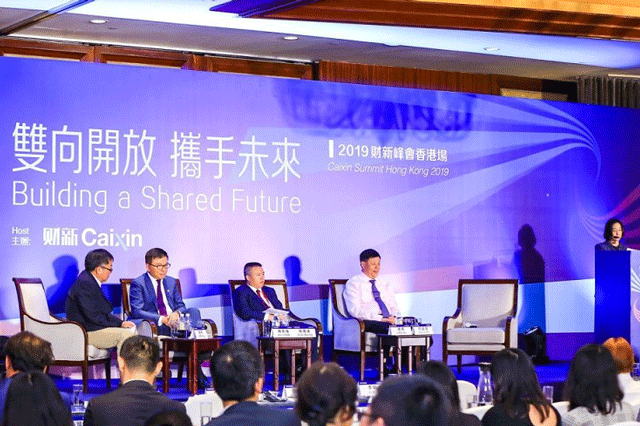
The annual Caixin Summit Hong Kong is one of Caixin Media's flagship events and is arguably the foremost regional conference on finance and economics. It is widely recognized that the summit has played an essential role in facilitating the economic growth and integration in Asia as well as in promoting its social and cultural progress.
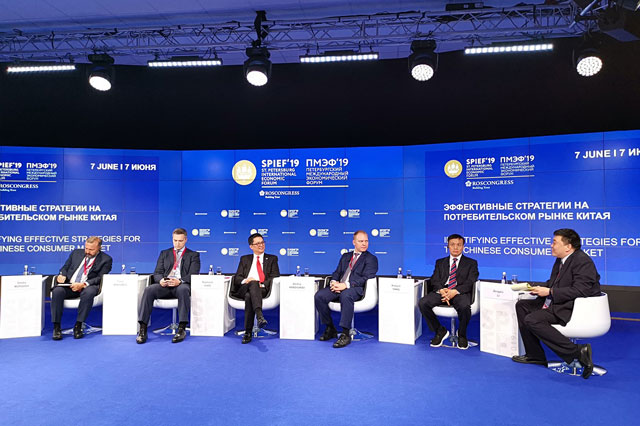
Is China going through a "consumption downgrade?" How might technology reshape business models to reach Chinese consumers? How can synergies between the EAEU and the BRI generate benefit to consumers across the Eurasian economies? Caixin Roundtable at St. Peterburg, hosted by senior editor Li Zengxin, featuring Timur Maksimov and Raymund Chao.
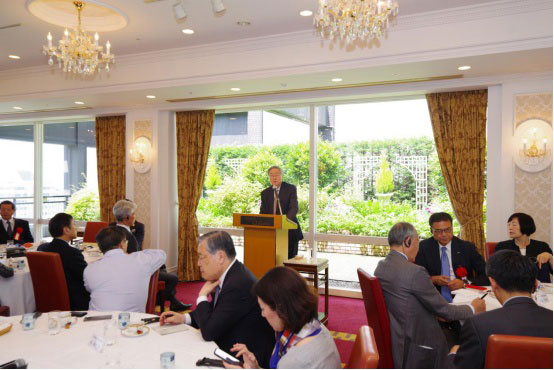
How can China and Japan work together to coordinate their infrastructural investments in third-party markets? What kind of technological ecosystem should we seek to achieve in Asia and beyond? In partnership with Boao Forum for Asia and Asia Pacific Initiative, Caixin Roundtable convened Chinese and Japanese dignitaries, featuring Zhou Xiaochuan, Takeshi Niinami, Tadashi Maeda and Hu Xiaolian to explore the common ground between China and Japan.
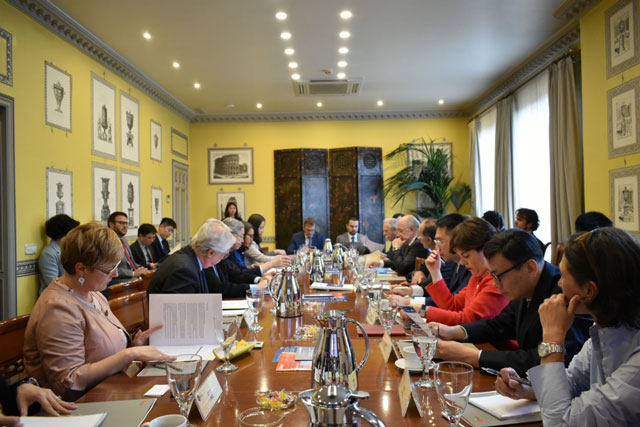
As China rebalances its economy and opens up further its financial market, the rest of the world is looking at China with more interest and expectation of investment opportunities. Candid, in-depth, and constructive dialogue over China-E.U financial connectivity between Zhou Xiaochuan and Jean-Claude Trichet at Caixin Roundtable Madrid, co-hosted with the prestigious Elcano Royal Institut to weigh in on China's economic openness, China-Europe financial market interconnection, among others.
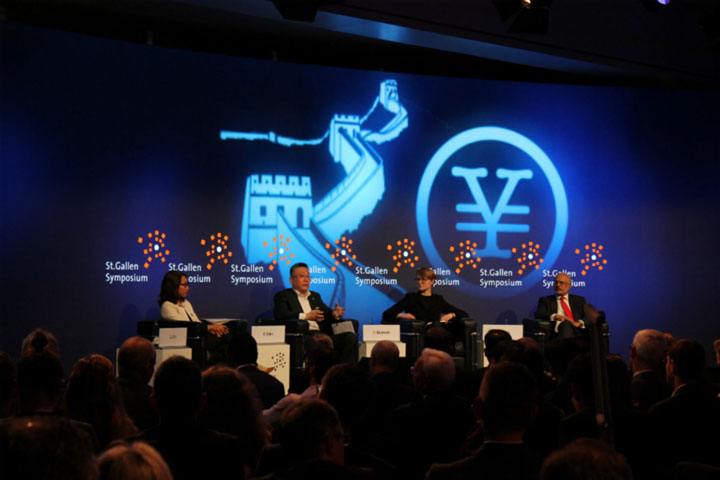
How is capital being mobilized for innovation in China? What are the factors that will influence China's technological innovation capability from an economic perspective? Caixin hosted two debates at 49th St Gallen Symposium on China's new economy and capital for innovation, with insights from Freeman Shen, Piyush Gupta and Freya Beamish.
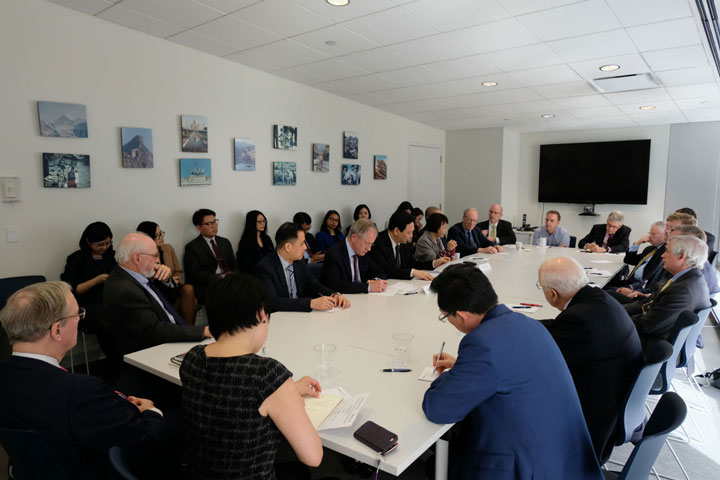
Will China deliver on its promise to open up further its financial market? How can we reinvigorate multilateralism in global financial governance? On the sidelines of the Spring Meetings of the Boards of Governors of the WBG and the IMF, Caixin media and Peterson Institute for International Economics (PIIE) jointly hosted a roundtable in Washington, featuring Jin Liqun, Robert Zoellick and Chen Yulu.
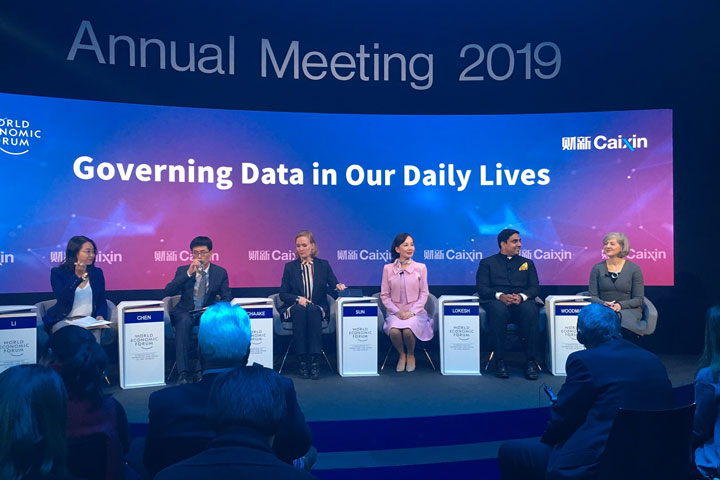
Trade frictions, wealth disparities, and populist tendency spark a backlash against globalization, making the global environment more unpredictable and difficult to navigate. How does the technological breakthrough modify our societies? This year, Caixin Media hosted three events at Davos discussing on data governing, Asia’s economic prospect and China-U.S. economic relations.

Financial technologies continue to broaden and diversify globally, changing the way we approach financial services. How will FinTech fit into China's economic transition and an ever-changing global landscape? How will authorities maximize the benefit of financial innovation while addressing the potential risks?
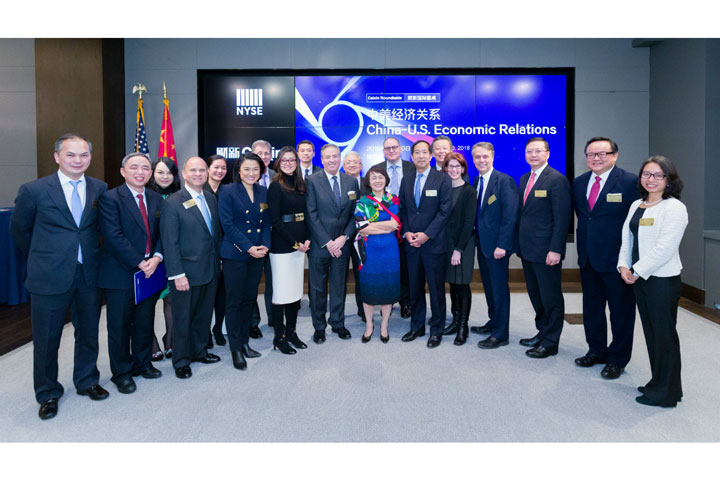
Under the context of China-U.S trade war, uncertainty has risen significantly in economics, geopolitics and the trend of globalization. The on-going trade conflict is one prominent chapter of this uncertain environment. What’s the future of China-U.S. economic relations in the world system?
The session was developed in partnership with New York Stock Exchange.
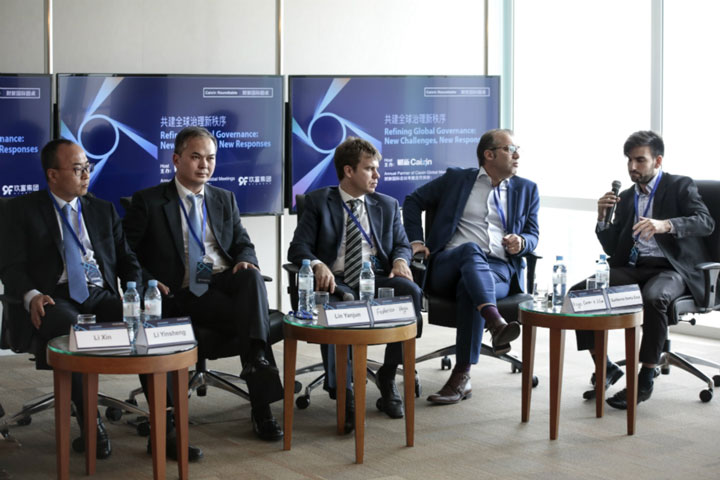
In today's world, trade frictions between major economies are growing, international cooperation is under threats of increasing uncertainties. Facing with the rising nationalism and protectionism, what consensus and values should we seek to establish in addressing global problems?
The session was developed in partnership with University of Tres de Febrero.
Speakers: Jorge Faurie, Henrique Meirelles, Eduardo Amadeo, Sherpa Carolina Castro.
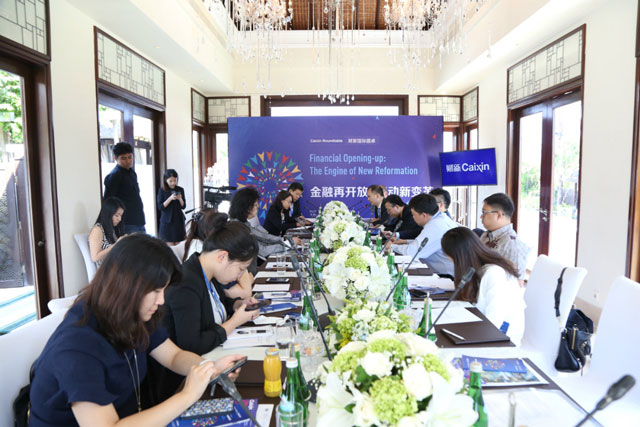
The session stressed on the issues of financial opening-up, integration, innovation and reformation. What makes the current wave of opening up different from previous efforts? How do international financial institutions involve in, benefit from and contribute to China’s economic restructuring?
Speakers: Yi Gang, Paul Chan Mo-po, Veerathai Santiprabhob, Takehiko Nakao.
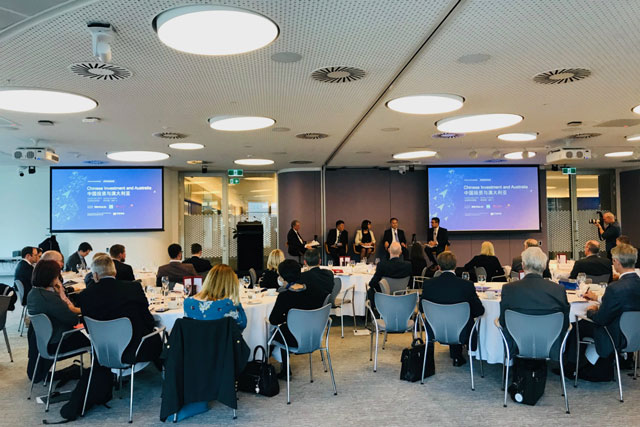
The China-Australia economic relationship continues to grow in a period of adjustment to lower commodity prices and through the liberalization of Chinese markets delivered by ChAFTA. How will China and Australia navigate the Trump administration’s challenge to the global trade regime which anchors the conduct of rules-based multilateral trade?
The session was co-hosted with Australian Financial Review.
Speakers: Michael Stutchbury, Hu Shuli, Andrew Parker.
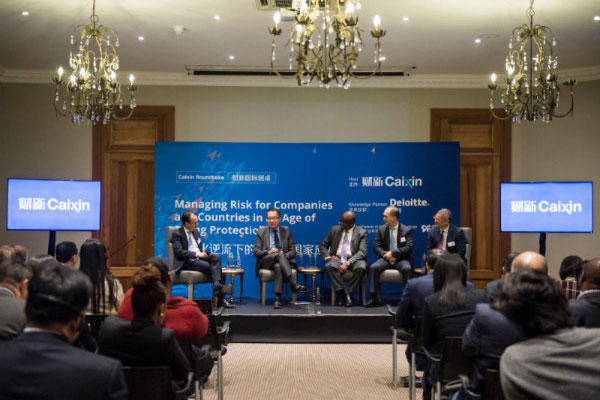
With the rapid development of globalization, how should developing countries cope with the rising protectionism? How should emerging economies better integrate into the global financial system?
The session was developed in partnership with Deloitte.
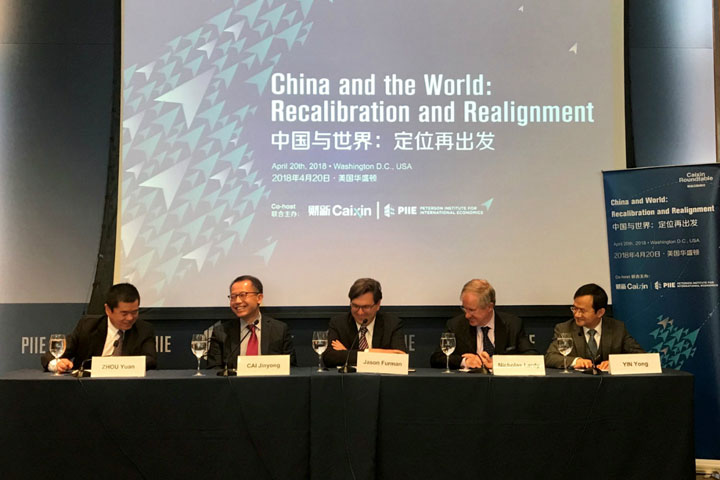
The panel discussions were held on China’s future reforms and the fate of the global economic system under the context of trade war. How will businesses cope with rising protectionism around the world?
The discussion also includes:
- Global macro financial risks prevention
- Global financial derivative products and innovative models regulations.
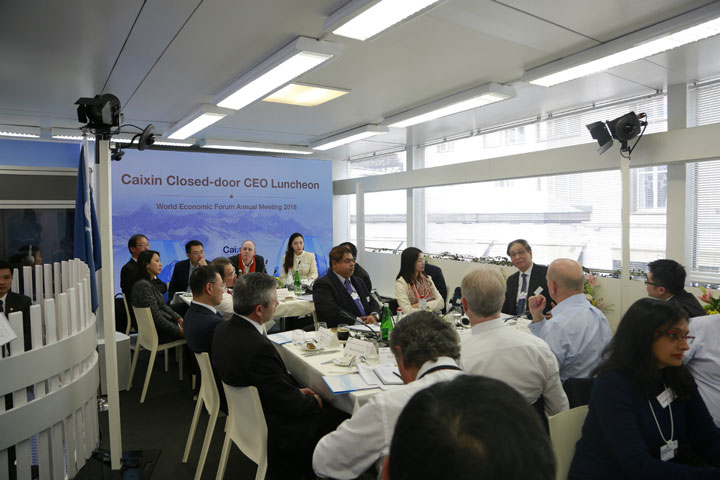
At the juncture of global economic recovery, China's reform and opening up once again ushered in a favorable time window. Looking ahead, how can China innovate in and transform its economy, trade, finance, science and technology to further intensify its opening up so as to create a better market environment and enhance its international competitiveness?
Ministers, Central Bankers and Financial Regulators
VCs, PEs, and Institutional Investors
Global CEOs, Presidents and Chairmans
New Economy Leaders and Pioneers
Governor, People’s Bank of China
President, China Society for Finance and Banking; Former Governor, People’s Bank of China
Honorary Chairman, Group of Thirty; Former President, European Central Bank
Former Minister for Foreign Affairs of Argentina
Former Deputy Prime Minister of Spain
Former President of the World Bank
Former U.S. Deputy Secretary of State
Former President, Asian Development Bank
Governor, Bank of Thailand
President, Asian Infrastructure Investment Bank (AIIB)